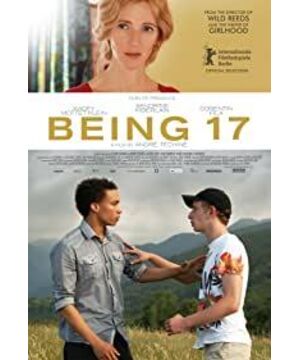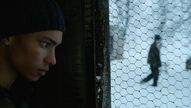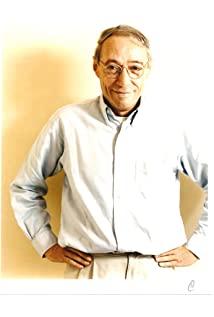When we were seventeen, what were we doing.
It was a year when the ice melted and the spring breeze was blowing. It was our best green year. Even if there are any distracting thoughts, it can only be kept in mind. Fortunately, from 1980 to 1981, we saw Truffau’s "The Last Subway", Philip Noiret and Romei Schneider’s "Old Gun", and of course the most "Zorro" starring the fire Alain Delon, and the smiling "Escape from the Tiger's Mouth", which were reproduced a year earlier, such as "Notre Dame", "Count of Monte Cristo" and "Les Miserables" and other French favorites. piece. If there is anything worth remembering about my youth, it may be related to these light and shadows, foreign translations, and the just-popular "Sweet Voice".
"When We Are Seventeen" (2017) by the famous French director André Tessine, the film is divided into two parts: "early pregnancy" and "second trimester", which starts with Tom's mother being pregnant. Similar to Tessine’s previous films, they are entirely prose images. They are gentle, elegant and mysterious. This quality is also destined to have never been popular in his films, except for "Wild Reed" (1994), which won Caesar's best. Except for the Best Director Award and the Best Actress Award, his films seem to have only been nominated.
Focusing on the emotions between people, especially the secluded emotions of young people, Tessine's films are indeed unique. Often his films don't feel special after watching them, but they can cause long repercussions. But this "When We Were Seventeen" is still very different from his previous films at least in ideological terms. Just as "Wild Reed" involved the war in Algeria in 1962, "When We were Seventeen" also involved the anti-terrorist war far away from France. The 17-year-old boy Damian's father Nansen was on the anti-terrorist battlefield in Afghanistan as a helicopter pilot of the Army Air Force. You can only contact his wife Marianne through the video.
Nansen's only time to return home to visit relatives, also made a special trip to Tom's house, and asked Tom to come to his home to review his homework. Like Damian, 17-year-old Tom lives in the mountains of the Pyrenees. It takes a few hours to go to school and manage his own ranch. His mother is pregnant and needs to be hospitalized. As a doctor, Marianne made a special trip to Tom’s house to see and treat. She told Damian that she liked Tom very much and hoped that he could concentrate on studying at my home without having to go back and forth for so long.
The problem is that although Damian and Tom are classmates, they are like a pair of enemies. Tom once stumbled Damian, and the two have been fighting each other since then, making them like enemies. To this end, Damian specifically asked boxer Poirot to learn boxing. Even so, Damian couldn't hold back his mother, so he acquiesced in Tom coming to study at home.
Even so, the relationship between the two did not improve, but it looked worse. When Tom caught a cold and got an inflammation in his throat, Marianne checked him. Damian saw this scene and satirized him for taking a cold deliberately for the sake of sympathy, so that my mother could treat you, and whether your dick hardened. This of course angered Tom. For this reason, the two made an appointment to fight in the silent mountain, and Damian was beaten on the ground. Marianne didn't know that the two boys were still fighting, and thought they were reconciled. Things didn't change dramatically until Damian asked Tom to go to a remote place with him.
It turned out that Damian found a "like-minded" man through the Internet. When he met, he found that both sides had concealed his age. The old man wanted to kiss him, but he refused. He came out in frustration. Tom, who had been waiting in the car, got out and asked what was going on. Damian didn't say anything, but the man followed out, but Tom visited the dairy farm he ran with him. When he returned, Tom said I knew everything, and he told me about you. Damian flushed and said, "Why did you stumble me back then." Tom said I saw you putting on earrings to show off, and I couldn't understand you. what about now. Get used to it now.
Damian said you know what, I have always liked you. This may have caught Tom by surprise, Damian would kiss him when he got excited, and he was so angry that he got out of the car to pee, but he rolled down the hillside. Damian was helpless, so Poirot and his mother were invited. After he came up to rescue Tom, Tom's arm was injured and bandaged. Mary Ann, who returned home, found them and asked them to lift their shirts. When they found that they were all decorated, she said that I really regret letting Tom come over.
In this way, Tom left her house and returned to Dashan. After that, the two fought again at school. Tom was expelled from the school, but Damian lost his father Nansen. The film took a long time to present the farewell and burial ceremony of his father's body, solemn and sacred, and its intention is obvious. Father Nansen died in the battle, and finally Tom and Damian came together, with the kind of real symphonic excitement. Tom’s mother also gave birth to a baby girl, and Tom’s holding this baby became a proof of family love.
The painful Marianne followed Tom into the mountains. This way of walking at will, open and ironing, also gave the two generations the possibility of a real dialogue and open their hearts. She told Tom that she could not bear the sadness of her husband's departure, and that she wanted to leave this small southern city and might go to Lyon, hoping that he would not tell Damian for the time being. But the film did not explain whether she was going forward.
At the end of the film, there is a little fortunate to have a Japanese-style healing film. Damian came to the mountain, ran to call Tom, and made me get goose bumps. The nearly 70-year-old Tessine suddenly came here so suddenly, it was really childlike. The texture of the film comes from the natural part, which triggers more agility and delicate feelings than the interior scene. For example, the snow-capped Pyrenees at the beginning and the lush greenery of the last mountain form a contrast of the cycle of the four seasons.
From contradiction to blending, this seems extremely common, and there is no life or death. This natural intention shows the director's different mindsets and standards. Don't forget that Tessine, like Truffau and Godard, was once a master of film critics.
Another ambiguity in the film. When Tom arrived at Mian’s house, Marianne was eager to have a lustful dream with Tom at night. This is indeed a bit ridiculous. It looks incredible, but it is unbearable for a lonely woman. True portrayal. When Damian told her mother about him and Tom, she was not surprised, but she understood indifferently. As she responded to her son, what do you want me to say (I can only understand). This kind of reaction is in line with human nature, and it is more consistent with the open reality of France.
Speaking of this, in fact, the film is not as simple as saying that the two people have "like-minded" emotions. Tom is the adopted son of the couple, of Arab descent. The director meticulously designed this "bureau" so that an ordinary emotion is linked to the anti-terrorism war in the Middle East and Arab immigration. It can be said that the eyebrows and beards of national affairs and family affairs are scratched. This is a true portrayal of today's French society.
Among the immigrants in Europe, France accounts for 7 million. If you add the previous mixed living and marriages, it is even more. It is the country with the most immigrants in Europe. The vast majority of immigrants come from the former French colonies of North Africa and the Middle East. Arabs all believe in Islam. And another fact that cannot be ignored is that the frequency and severity of terrorist attacks in France in recent years is also one of the most severe countries in Europe.
In the film, a pure French boy and a boy of Arab descent are forcibly twisted together. One is the son of the brother and the other is a laborer. From the beginning of the quarrel between the two of them to the later emotional transformation, it seems that they want to explain the inter-ethnic relationship. His emotions are compatible and fused, but this shallow level of bridging is just the director’s wish.
Just as Damian’s father died in the war on terrorism, the integration of races also comes at a price. It’s not that their “like-minded” suspicions are so handy, or the French far-right leader Le Pen doesn’t have that much. Supporters. This shows that immigrants are indeed a very headache for the French government.
As long as there is a terrorist incident, the general public in France will feel that this kind of trouble is in danger of intensifying division. I remembered that Tom, who had a mediocre grade, got the best in the essay "On the Conflict and Tension in the Middle East" arranged by the teacher, which shows the director's clear intention. The director wanted to deepen the theme of the movie, but it turned out to be a bit overwhelming. But it is undeniable that it still has its own uniqueness in the performance of the theme.
Starting from the individual confrontation between the two rich and poor families, to the final reconciliation and emotional integration, this obviously highlights the urgent reality projected in the director's heart, or the long-term anxiety in his heart. Here, we cannot fail to say that Tessine is a thoughtful director. Just like the expression of individual emotions in "Wild Reed", which involves the general trend of France, it can be seen that its good intentions are obvious, and whether the film succeeds or fails, we will let us deeply understand it. Deep respect.
2017, 5, 4
View more about Being 17 reviews










